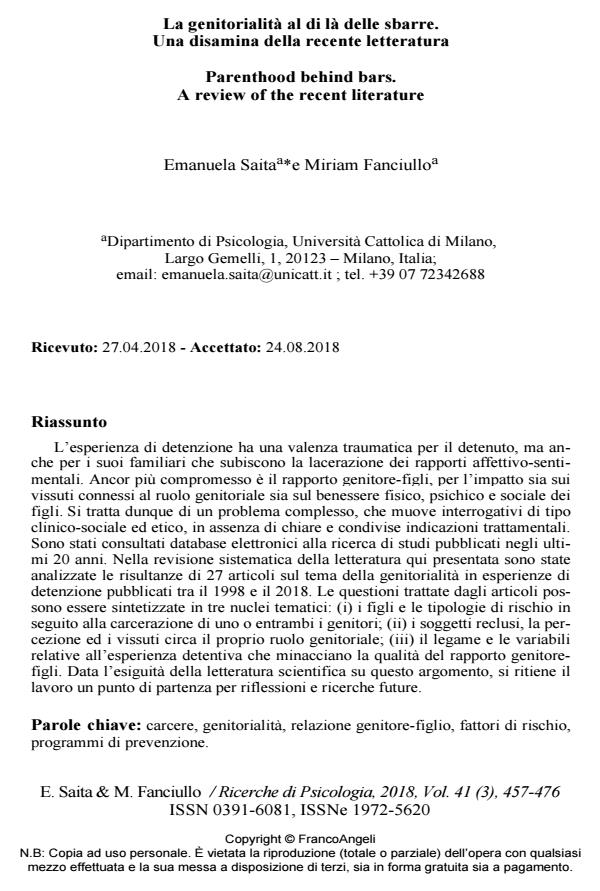Parenthood behind bars. A review of the recent literature
Journal title RICERCHE DI PSICOLOGIA
Author/s Emanuela Saita, Miriam Fanciullo
Publishing Year 2018 Issue 2018/3
Language Italian Pages 20 P. 457-476 File size 65 KB
DOI 10.3280/RIP2018-003009
DOI is like a bar code for intellectual property: to have more infomation
click here
Below, you can see the article first page
If you want to buy this article in PDF format, you can do it, following the instructions to buy download credits

FrancoAngeli is member of Publishers International Linking Association, Inc (PILA), a not-for-profit association which run the CrossRef service enabling links to and from online scholarly content.
Detention is a highly traumatizing experience for both the incarcerated person and the family due to the break of the romantic and affective relationships. Detention itself influences either mothers’ or fathers’ experiences as caregivers and represents a risk for the psychological, physical and social well-being of the children. Thus, the parent-child relationship following the incarceration represents a relevant theme that raises clinical, social, and ethical issues. Electronic databases were systematically searched for studies published in the last twenty years on this topic. In this systematic review of the literature, the results of 27 articles on the issue of parent-child relationship in a prison context published between 1998 and 2018 were analyzed. The topics considered by literature could be summarized in three thematic issues: (i) children and types of risk following the incarceration of one or both parents; (ii) parents and how the prison experience affects the perception of one’s parental role; (iii) the characteristics of parent-child relationship and how the detention experience can harm the quality of the parent-child relationship. There is a lack of literature on these topics, for this reason this paper could represent a starting point for new investigations and future studies.
Keywords: Prison, parenting, parent-child relationship, risk factors, prevention programs.
Emanuela Saita, Miriam Fanciullo, La genitorialità al di là delle sbarre. Una disamina della recente letteratura in "RICERCHE DI PSICOLOGIA " 3/2018, pp 457-476, DOI: 10.3280/RIP2018-003009